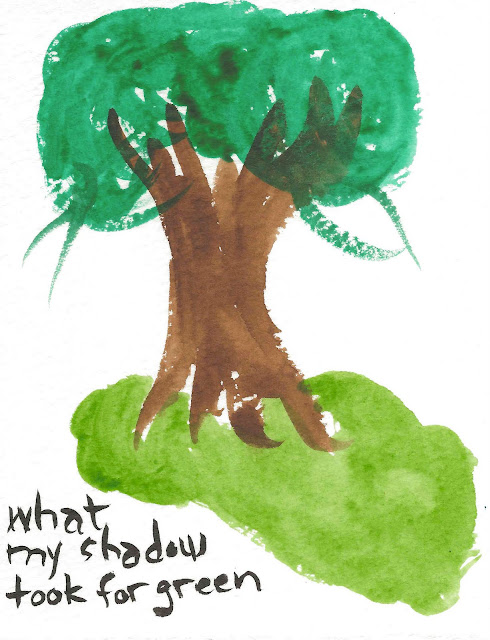233. Among the Freaks
d’
we all start
young and
helpless (an
arm not even
reaching out
blind or
blinded the
wind too
harsh at
any speed)
ready
to die
de
de la
the ti
niest
ones
hurt
us the
most
& we
call
them
slights
but
they are
sleights
(of hands
& eyes
how the
two dis
agree)
du
des
so many
ways to
be bro
ken in
pieces
or half
every
one a
frag
ment
of a
self
and a
self
not
made
always
the ghost
of what
they
never
were
of
o’
we are
each of
us freaks
no-one
fits in
perfectly
with the
ways of
others
sep
arate
sep
arable
pet
als
everyone
knows
how
there’s
nothing
to us
that
is the
reason
why we
go on
we all start
young and
helpless (an
arm not even
reaching out
blind or
blinded the
wind too
harsh at
any speed)
ready
to die
de
People accept that a poem is a broken thing, that it breaks into lines, might even break its own words apart, that it is a lapidary art, a process of accumulating glinting fragments into a fiction of a whole. But a poem is a stream through a thought (or myriad thoughts), a memory of an idea, though never the idea itself, because it is lost, because every poem is a failed poem, one never able to live up to the dream the poet had for it, as every person is a failed soul, incapable of living the best live possible, on this temporary earth, with these frail and temporary bodies.
de la
the ti
niest
ones
hurt
us the
most
& we
call
them
slights
but
they are
sleights
(of hands
& eyes
how the
two dis
agree)
du
I graduated from high school from a school I attended for a single year, and in that year I was given the choice between Christology or service in the community. I chose service and spent a semester working with severely handicapped children. Working there required extreme patience and an ability to function when your heart was broken. I remember one girl was over a year old but only a little larger than a loaf of bread. Everything about her was miniature—her dark jewellike eyes, her tiny fists, each the size of an acorn. She was so horribly handicapped and so fragile that blankets were bundled around her to protect her and hold her in place. And she would never really grow. Her body would never be able to feed herself. Her mind would never allow her to understand what I gently whispered to her. Yet she was somehow beautiful in her horrifying handicaps, and I assume tonight that she is now many years dead, never really having learned what it was to live.
des
so many
ways to
be bro
ken in
pieces
or half
every
one a
frag
ment
of a
self
and a
self
not
made
always
the ghost
of what
they
never
were
of
Not all of the children were so handicapped. Some were only handicapped physically, and others only mentally. Some handicaps were relatively minor, but only because of the group the children together formed. Elsewhere they were freaks. It is sad to think that, because they were small children, most interested in play, and sometimes in love with me. I would sit with them, one at a time, for a half an hour, maybe more, and try to teach them, try to show them how to teach themselves how to pick up a block and move it onto a pile. They could do it sometimes. They were born the way I found them, and we were trying to hone their motor skills so sometime they could work putting together small things that people didn’t need.
o’
we are
each of
us freaks
no-one
fits in
perfectly
with the
ways of
others
sep
arate
sep
arable
pet
als
everyone
knows
how
there’s
nothing
to us
that
is the
reason
why we
go on


Comments
Post a Comment